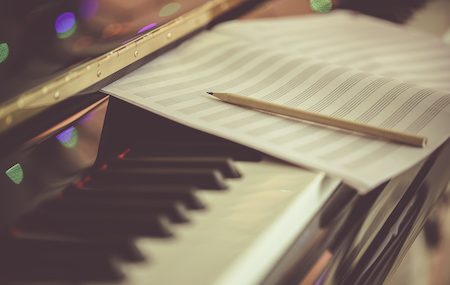Piano practice – what’s your take? For most new piano players, they start by focusing on time. Thirty minutes a day sounds like a good place to start.
Would it surprise you to learn there’s a better way, and it has nothing to do with timing? One of the best piano practicing tips you can learn from a professional is to stop focusing on time, and pay attention to quality instead.
Why? Because sitting at the keyboard bored out of your mind for thirty minutes every day won’t make you a better player. The only thing that will do is make you quit that much sooner.
Playing the piano is about enjoyment. Set up your piano practicing the right way, and you’ll enjoy it that much more.
Start with a goal in mind
Each day, you’ll be working towards a goal. Playing a passage in a song. Conquering a particularly tricky piece without stopping. Focus on that instead. Give yourself goals around what you wish to accomplish. Maybe you choose to play a certain section perfectly three times. So you work hard to play it, then do so well three times. It may take ten minutes or forty-five, but if you do it this way, you’ll feel good about the session when you walk away.
Create a peaceful place to play
Most families choose to place the piano in an area where the family hangs out. But that can lead to distractions, especially with other family members coming and going. While we don’t suggest playing the piano in a corner in the basement, be aware of the distractions around the place where your piano players will play.
Then take away other things that can reduce attention span. Never allow a phone anywhere near the piano. Make sure the television is turned off. Do what you can to create a peaceful environment. That will allow the player to play, and not think about everything else that’s going on in the room.
Practice is practice
If you’ve ever been a part of a workout routine, you know they are structured for maximum results. Warm up and loosen up. Do a high intensity workout routine. Finish by cooling down and relaxing.
The same applies to piano practice. Warm up with something to get your fingers moving; scales will do. Then work on your goals for the day. Finish with something fun – something you enjoy doing, possibly your favorite song.
Above all, practicing the piano should be fun and rewarding. The more active role the participant takes in creating the experience, the more they’ll enjoy the process.


